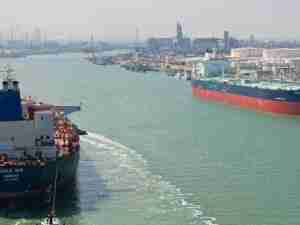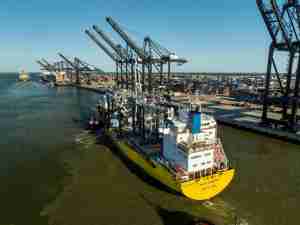China Harbor Engineering Company (CHEC), a subsidiary of China Communications Construction Company , will be in charge of the project to build a new container terminal. The first stage of work is estimated to cost some $600 million.
"Puerto Cabello has been left behind the times, without investment since 1970," Transport and Communications Minister Francisco Garces said during the signing of a memorandum of understanding with CHEC.
President Hugo Chavez's government last year nationalized the port, which receives about 75 percent of all the South American OPEC member's imports. He also nationalized two more of Venezuela's seven other ports, reversing their 1990s privatizations.
"We know there are currently many problems at the port, and this work is necessary to increase the efficiency of loading and unloading containers," CHEC's general manager in Venezuela, Huixian Yu, told Reuters.
Puerto Cabello hit the headlines in June with the discovery there of tens of thousands of tonnes of food in shipping containers left to rot by a state-run importer.
The saga was embarrassing for Chavez ahead of Sept. 26 legislative elections, since he often blames sporadic shortages of staples on capitalist speculators hoarding for profits.
Among the works planned for the port's refurbishment is the construction of two berths for post-Panamax ships that are more than 300 meters (984 feet) long. Garces said the overall project would double the cargo the country could receive.
CHEC's Yu said his company was in talks with Petroquimica de Venezuela (Pequiven) and state oil company PDVSA about other projects. He did not give more details.
Chinese energy companies are also involved in developing Venezuela's huge hydrocarbon reserves. In February, the China National Petroleum Company was awarded a stake in the Junin 4 block of its Orinoco extra heavy crude belt, which is seen as one of the biggest in the world.
Relations outside the energy sector have expanded in recent years: China built and launched a $400 million communications satellite for Venezuela in 2008, reducing the dependence of Caracas on U.S. and European satellites.
The Chavez government has bought Chinese radar equipment to monitor its borders, and Beijing also provided it with military training jets after Washington imposed an embargo in 2006 on sales of U.S. weapons parts to Venezuela. (Reuters)









